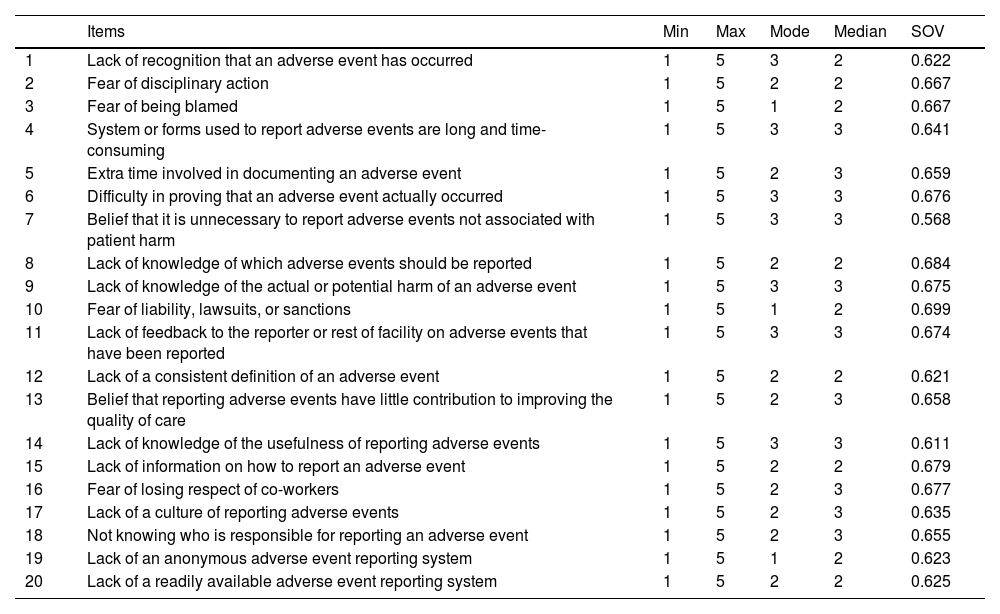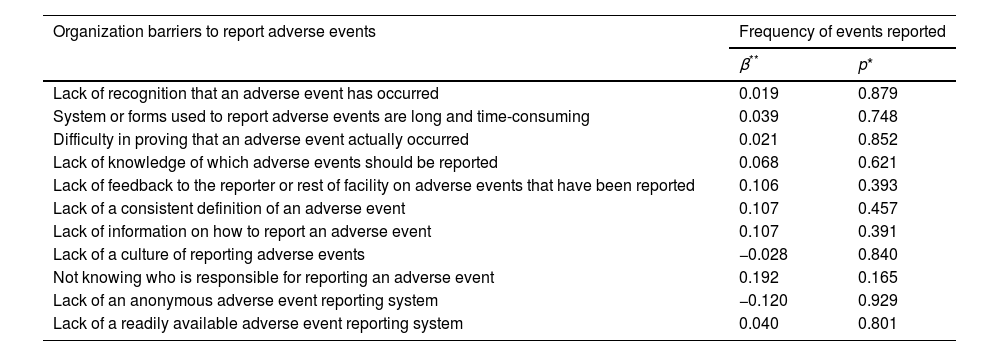Nurses represent the largest group of healthcare professionals and are responsible for improving patient safety, including reporting adverse events. However, adverse events are underreported due to the many barriers that compromise patient safety in the hospital setting.
AimThe study aimed to investigate the barriers to reporting adverse events as perceived by nurses working in intensive care units (ICUs).
MethodsThe exploratory sequential mixed-method study design was used. Data were collected between January 2022 and March 2023 in intensive care units of one selected university hospital in the Slovak Republic. The quantitative phase was carried out using a specific instrument to explore barriers to reporting adverse events and included 111 nurses from the ICU. The qualitative phase was conducted using semi-structured face-to-face interviews and consisted of 10 nurses from the ICU.
ResultsIn terms of quantitative aspect, fear of liability, lawsuits, or sanctions was the most significant barrier to reporting adverse events among ICU nurses. As a result of qualitative thematic analysis, four significant barriers to reporting adverse events were identified: negative attitude toward reporting adverse events; lack of knowledge and experience in reporting adverse events; time scarcity; fear.
ConclusionBased on the results of the study, it is evident that only effective and regular reporting of adverse events leads to the minimization of adverse events. To improve patient safety in hospitals, education and management practices must be implemented to overcome barriers to reporting adverse events. The most important approach to overcoming barriers to reporting adverse events is to implement a culture of no blame and a positive culture of patient safety.
Las enfermeras representan el grupo más grande de profesionales de la salud, y son responsables de mejorar la seguridad del paciente, incluida la notificación de eventos adversos. Sin embargo, los eventos adversos se subnotifican debido a las numerosas barreras que comprometen la seguridad del paciente en el entorno hospitalario.
ObjetivoEl estudio secuencial mixto exploratorio tuvo como objetivo investigar las barreras para la notificación de eventos adversos tal como son percibidas por las enfermeras que trabajan en unidades de cuidados intensivos (UCI).
MétodosSe utilizó un diseño de estudio mixto exploratorio secuencial. Los datos se recopilaron entre enero del año 2022 y marzo del año 2023 en UCI de un hospital universitario seleccionado en la República Eslovaca. La fase cuantitativa se llevó a cabo utilizando un instrumento específico para explorar las barreras para informar eventos adversos, e incluyó a 111 enfermeras de cuidados intensivos. La fase cualitativa se realizó mediante entrevistas semiestructuradas cara a cara y contó con la participación de 10 enfermeras de la UCI.
ResultadosBasándonos en la parte cuantitativa, el miedo a la responsabilidad, las demandas legales o las sanciones fue la barrera más significativa para la notificación de eventos adversos entre las enfermeras de la UCI. Como resultado del análisis temático cualitativo, se identificaron 4 barreras significativas para la notificación de eventos adversos: Actitud negativa hacia la notificación de eventos adversos; Falta de conocimiento y experiencia en la notificación de eventos adversos; Escasez de tiempo; Miedo.
ConclusiónBasándonos en los resultados del estudio, es evidente que solo la notificación efectiva y regular de eventos adversos conduce a la minimización de los mismos. Para mejorar la seguridad del paciente en los hospitales, se deben implementar prácticas educativas y de gestión para superar las barreras para la notificación de eventos adversos. El enfoque más importante para superar las barreras en la notificación de eventos adversos es implementar una cultura sin culpas y una cultura de seguridad del paciente positiva.
Article
Diríjase al área de socios de la web de la SEEIUC, (https://seeiuc.org/mi-cuenta/iniciar-sesion/) y autentifíquese.












